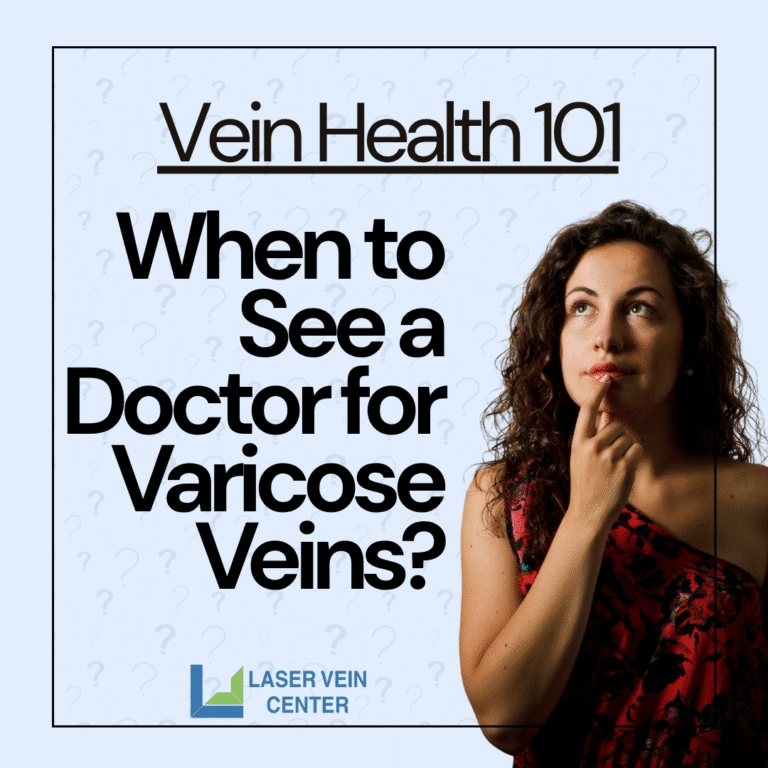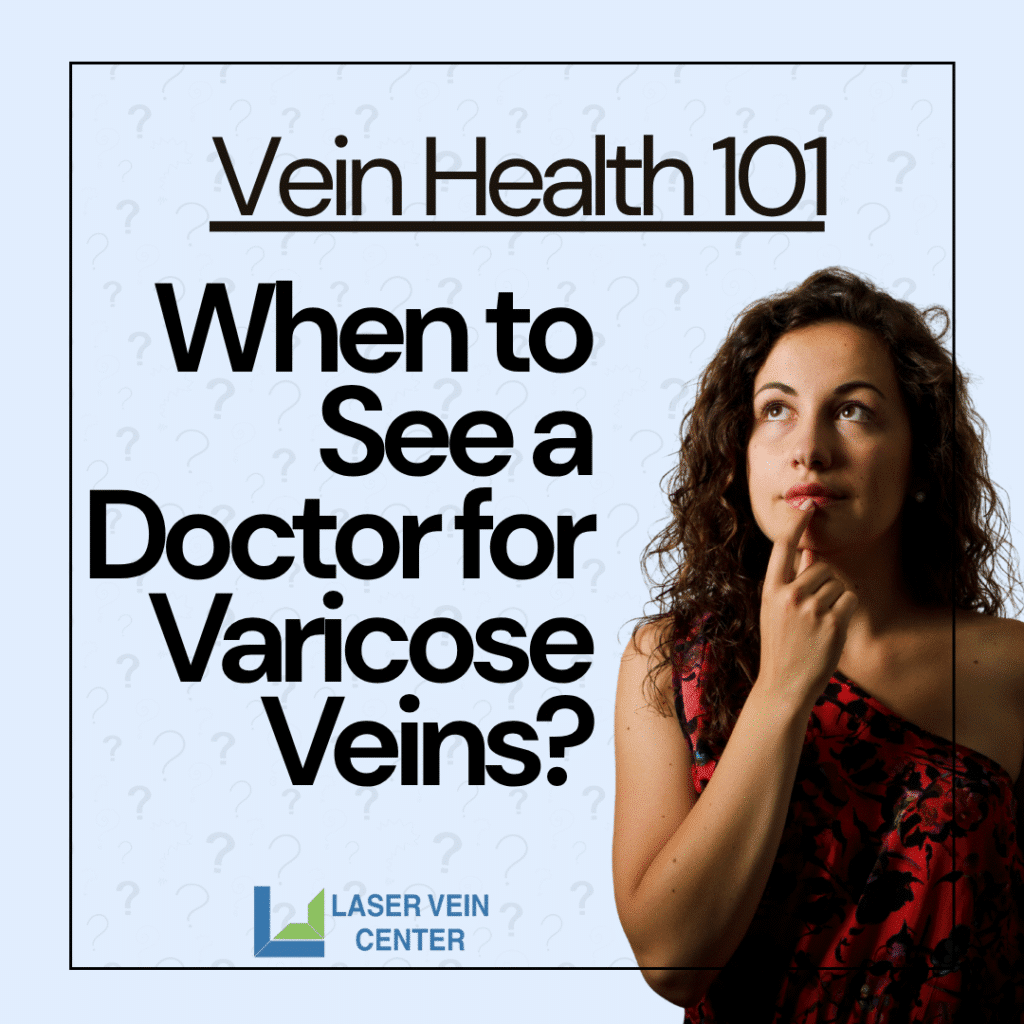
Varicose veins are more than a cosmetic concern. While they might start as a visible annoyance (bulging, twisted veins on the legs or ankles), they can signal underlying circulation issues that may require medical attention. At St. Louis Laser Veins, Dr. Thomas Wright and our experienced vein care team specialize in diagnosing and treating vein conditions at every stage. If you’re wondering whether your varicose veins warrant a trip to the doctor, this guide will help you know what to look for.
What Are Varicose Veins?
Varicose veins are swollen, enlarged veins that occur when faulty valves in the veins allow blood to flow backward and pool. This condition typically affects the legs and can result in symptoms ranging from mild discomfort to serious complications.
Common symptoms include:
- Aching or heavy legs
- Swelling in the lower legs and ankles
- Throbbing, cramping, or burning sensations
- Itchy or dry skin over the vein
- Visible bulging or rope-like veins
When Should You See a Doctor?
Many people live with varicose veins for years without seeking treatment, but there are key signs that it may be time to consult a vein specialist.
1. Pain or Discomfort Interferes with Daily Life
If your varicose veins are causing chronic aching, cramping, or fatigue in your legs, and they’re limiting your mobility or enjoyment of activities, it’s time to seek help.
2. Swelling and Inflammation
Persistent swelling in the legs or ankles can be a sign of venous insufficiency. This could progress to more serious issues, such as skin changes, infections, or ulcers.
3. Skin Discoloration or Texture Changes
Brown, reddish, or bluish discoloration on the lower legs, especially near the ankles, can indicate chronic vein disease. You may also notice the skin becoming thin, dry, or leathery.
4. Bleeding or Open Sores
Varicose veins close to the surface of the skin are vulnerable to injury and can bleed easily. In some cases, long-standing vein disease can cause venous ulcers that are slow to heal.
5. A Family History of Vein Disease
If vein issues run in your family, early screening can help catch vein problems before they become serious.
6. Cosmetic Concerns with Underlying Symptoms
Even if you’re mostly concerned with the appearance of your veins, it’s worth seeing a specialist if you also have any pain, swelling, or skin changes.
Why Early Diagnosis Matters
Varicose veins are often progressive. Left untreated, they can lead to more serious complications like deep vein thrombosis (DVT), blood clots, and skin ulcers. Early diagnosis enables minimally invasive treatments that can significantly enhance both comfort and appearance.
Modern Treatments Are Minimally Invasive
The good news is that today’s treatments for varicose veins are fast, effective, and minimally invasive. At St. Louis Laser Veins, Dr. Wright offers:
- Endovenous laser treatment (EVLT)
- Radiofrequency ablation (RFA)
- Sclerotherapy
- Ambulatory phlebectomy
These in-office procedures typically require little to no downtime and can help relieve symptoms while restoring confidence in your legs.
Schedule a Consultation with Dr. Wright
If you’re experiencing any of the symptoms above, don’t wait. The earlier you seek evaluation, the more options you have for effective, non-surgical treatment.
At St. Louis Laser Veins, we combine compassionate care with cutting-edge technology to deliver real results. Contact us today to schedule a consultation and find out the best path forward for your vein health.
Visit www.stlouislaserveins.com or call (636) 614-1665 to get started.

